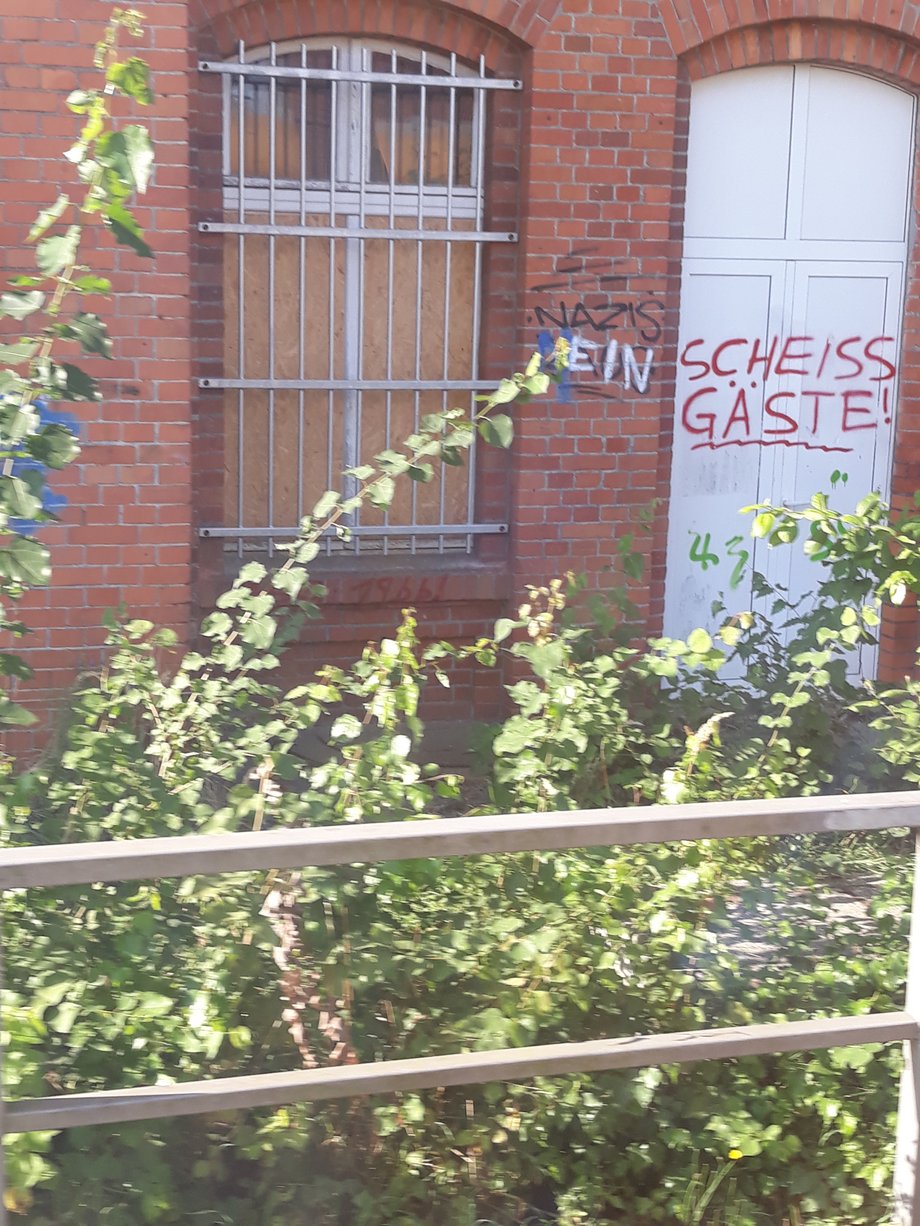
Community Work in the Field of Tension between Human Rights Mandate and (New) Right-Wing Influence
Community work is a specific method of social work. It supports people in the establishment of agency and political participation, taking into account different dimensions of marginalization of all people who stand in territorial relations to each other, form a functional context or are defined or defined by categorical belonging (cf. Eberlei et al. 2018: 77) Community work avoids an individualization of social problem and is interested in changes of structural disadvantages (cf. Oelschlägel 2013: 199). Social work in the community is based on a scientific, professional and ethical framework of justification, which includes a human rights mandate (cf. Martin 2013: 143).
Since 2014 at the latest, it has been observed that communities in eastern and western Germany have been affected by extreme right-wing and völkisch authoritarian mobilizations. This includes the mobilization successes of the demonstrations of the 'Patriotic Europeans against the Islamization of the Occident` (Pegida) starting in the winter of 2014 in Dresden (cf. Korsch 2016: 52), the broad approval of racist resentments (cf. Decker et al. 2018: 109), the professionalization of right-wing digital and analog media, the quick-witted actions of actionist right-wing groups (cf. Hufer 2018: 8). Associated with this are racist, nationalist, and heterosexist shifts in discourse, in which desolidarizations of subjects are insisted upon in favor of the völkisch collective and anti-scientific arguments are made (cf. Salzborn 2017: 9). These shifts in discourse and the associated changes in the political and social framework pose particular challenges for professional community work.
The PhD project wants to work out whether and how community work can limit or reverse normative gains in terrain for these positions (cf. Quent/Schulz 2015: 279). In terms of professional critique, it is also important to investigate whether and which shifts in normality in civil society produce pressure to adapt in practice (cf. Schäfer 2019: 144) and whether social exclusions can be produced through participatory activities that organize homogeneous majorities (Diebäcker 2013: 178).
Since the 2000s, academic research and publications on right-wing extremism and social work in eastern Germany have focused primarily on programs and projects that explicitly promote democracy and work preventively against right-wing extremism. The current conditions, forms and structures of pedagogical action of practitioners in regular community work in Germany, are largely unexplored (Stützel 2019, Möller 2014: 209). With regard to the question of how professional community work is discursively shaped and how right-wing extremist terrain gains in local and regional contexts are limited or facilitated by the work, a research desideratum is evident. Based on this, the research project developed here will focus in particular on municipal and regional social work in the community.
Through its praxeological approach, the research project opens up the construction of social reality of the actors. Accordingly, professional action is reconstructed in its interactive practice in certain conjunctive spaces of experience along the conditions of constitution. Narrative interviews with experts in community work will be evaluated using the documentary method (e.g. Bohnsack 2014, Nohl 2006) in order to be able to make general statements about the professional knowledge found in the field and how it can be further developed, especially with regard to dealing with new-right interventions in the thematic fields of social work.
Bogner, Alexander; Littig, Beate; Menz, Wolfgang (2002): Das Experteninterview- Theorie, Methode, Anwendung. WiesbadenBohnsack, Ralf (2014): Rekonstruktive Sozialforschung- Einführung in Methodologie und Praxis qualitativer Forschung, Toronto/BerlinBohnsack, Ralf et al. (2019): Typenbildung und Dokumentarische Methode, in: Amling, Steffen et al.: Jahrbuch der Dokumentarischen Methode, Heft 1 2019, S. 17-50Decker, Oliver et al. (2018): Das autoritäre Syndrom heute, in: Ders./Brähler, Elmar (Hg.): Flucht ins Autoritäre – Rechtsextreme Dynamiken in der Mitte der Gesellschaft, Gießen, S.177 – 156Diebäcker; Marc et al. (2013): Institutionelle Raumforschung – eine Programmskizze, in: Dies.: Soziale Arbeit und institutionelle Räume. Wiesbaden, 162 - 182Eberlei, Walter et al. (2018): Der Menschenrechtsansatz in der Sozialen Arbeit, in: Ders.: Menschenrechte – Kompass für die soziale Arbeit, StuttgartHufer, Klaus Peter (2018): Neue Rechte, altes Denken- Ideologie, Kernbegriffe und Vordenker, Weinheim/BaselKorsch, Felix (2016): Einmal den Zirkel um Dresden schlagen. Pegida- Grundzüge und Abgründe einer Protestserie, in: Häusler, Alexander / Virchow, Fabian (Hg.): Neue soziale Bewegungen von rechts?, Hamburg, S. 52 – 62Oelschlägel (2013): Geschichte der Gemeinwesenarbeit in der Bundesrepublik Deutschland, in: Stövesand et al.: Handbuch Gemeinwesenarbeit, Opladen/Berlin/Toronto, S. 181 –202Salzborn, Samuel (2017): Rechtsextremismus und Rechtspopulismus - Konzeptionelle Grundlagen, in Sozialmagazin, 42. Jg. · H. 11–12 · 2334, S. 6 -12Schäfer, Ina (2019): Ein bisschen Berlin in Bautzen –Die Bedeutung zivilgesellschaftlicher Angebote als sozialräumlich-alternativer Schutzraum für Geflüchtete, in: Alisch, Monika (Hg.): Zwischenräume--Sozialraumentwicklung in der Migrationsgesellschaft, OpladenStobl, Rainer et al. (2003): Demokratische Stadtkultur als Herausforderung –Stadtgesellschaften im Umgang mit Rechtsextremismus und Fremdenfeindlichkeit, Weinheim und MünchenStützel, Kevin (2019): Jugendarbeit im Kontext von Jugendlichen mit rechten Orientierungen. Rekonstruktiv-praxeologische Perspektiven auf professionelles Handeln, WiesbadenMöller, Kurt (2014): Programme gegen Rechtsextremismus - zwischen Projektitis und Nachhaltigkeit, in: Schubarth, Wilfried (Hg.): Nachhaltige Prävention von Kriminalität, Gewalt und Rechtsextremismus. Beiträge aus Wissenschaft und Praxis, Potsdam, 201-228Nohl, Arndt (2013): Relationale Typenbildung und Mehrebenvergleich- Neue Wege der dokumentarischen Methode, WiesbadenNohl, Arnd-Michael (2017): Interview und dokumentarische Methode. Anleitungen für die Forschungspraxis, 5. aktualisierte und erweiterte Ausgabe, WiesbadenNohl, Arnd-Michael (2019): Zur Bedeutung der relationalen Typenbildung für die Dokumentarische Methode, in: Amling, Steffen et al.: Jahrbuch der Dokumentarischen Methode, Heft 1 2019, S. 51-66Processor: Ralf Mahlich
